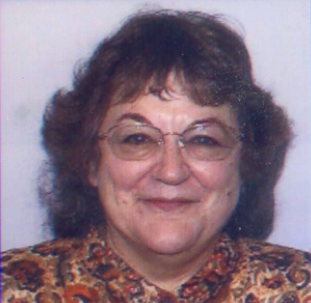Many of the functions performed by the staff at the AHA headquarters office are invisible to those in the field. In some cases, you may glimpse the tip of an iceberg: those of you who received a letter of thanks for nominating a potential prize recipient, for instance, may not know that over 700 such letters went out last year. In other cases, you may not see our intervention at all, such as when we provide other agencies with historians’ names based on their expertise or experiences. I call attention to such requests in this issue because we want to make our referral process as open and informed as possible.
Who wants to know you? Page 20 of this issue of Perspectives provides information about interdisciplinary research opportunities at the National Science Foundation (NSF). As the NSF information suggests, funding agencies, both federal and private, often seek expertise among our membership. As the NSF succeeds in funding initiatives that link researchers from different disciplines to collaboratively pursue basic re search, we will want historians to participate fully. NSF has just asked us for mailing lists of our members interested in (a) contributing to a Consortium for Violence Research—where contributions by social historians would provide a depth and perspective often lacking in social science projects focused on the present (particularly in work on families and neighborhoods and on collective violence), and (b) participating in any of the four cross-directorate programs at NSF—Presidential Faculty Fellows, NSF Young Investigators, NSF Visiting Professorships for Women, and Small Business Innovation Research.
Similarly, program officers at the National Endowment for the Humanities (NEH) constantly look for appropriate persons to serve as reviewers. They begin their searches with the AHA’s Directory of History Departments and Organizations. We hope to make the Directory more useful for this purpose in the future by publishing it in electronic form. But we would also like to begin alerting the NEH to members with particular kinds of specialties, as well as to those who could increase the diversity of the pool from which the NEH program officers draw reviewers and panelists.
Another group we often receive requests from is the National Board for Professional Teaching Standards. Again, if you have experience that would be relevant, and are willing to serve in this capacity, we would like to know about your interest and your background. A related request comes from departments that must set up external review committees; we are frequently asked to identify historians who could serve as outside experts in evaluating academic programs, and we would like to move beyond those among our members whose expertise we already know.
As the AHA becomes more proactive in alerting news media to the work we do (we are working now to remove our light from its hiding place under a bushel), we will be issuing more and more press releases on topics selected for emphasis by the Council, divisions, and committees. As we do this, we would like to include as contacts the names of members with appropriate subject expertise.
To provide a final set of examples, I ought to mention requests from publishers. Acquisition editors, of course, regularly consult our Directory of History Departments and Organizations. But you may not know that when you tick off boxes on the AHA’s membership renewal form indicating your specializations, you are also providing the kinds of identities publishers seek when sending out announcements about new books on particular subjects. Marketing by direct mail is often the most successful strategy used by publishers, but the extent of this success relates directly to the ability to target potential buyers quite precisely. We think it is in your interests, as well as the profession’s at large, to help them do this.
All of these uses suggest that the more information you provide to us, the more we can successfully connect you to others who want to know you. Please send us information about your teaching and research specializations if you would like us to pass the information on.

